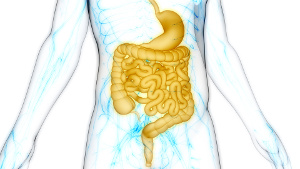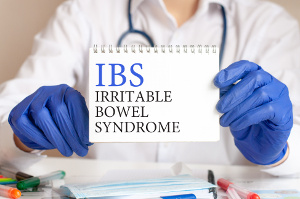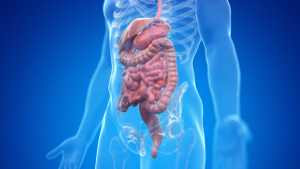afterLoad (456.41KB) (686μs)
afterInitialise (1.28MB) (27.47ms)
afterRoute (869.84KB) (11ms)
beforeRenderComponent com_tags (20.38KB) (375μs)
afterRenderComponent com_tags (1.34MB) (49.46ms)
afterDispatch (27.03KB) (5.45ms)
beforeRenderRawModule mod_articles_category (READ MORE...) (388.12KB) (10.44ms)
Before Access::preloadComponents (all components) (56.7KB) (1.64ms)
After Access::preloadComponents (all components) (103.05KB) (3.21ms)
Before Access::getAssetRules (id:8 name:com_content) (840B) (28μs)
After Access::getAssetRules (id:8 name:com_content) (7.05KB) (56μs)
afterRenderRawModule mod_articles_category (READ MORE...) (5.7KB) (89.11ms)
beforeRenderRawModule mod_tags_popular (Search) (4.81KB) (35μs)
afterRenderRawModule mod_tags_popular (Search) (3.04KB) (54.31ms)
beforeRenderRawModule mod_custom (Remember to download Heart Healthy Seniors) (816B) (37μs)
afterRenderRawModule mod_custom (Remember to download Heart Healthy Seniors) (4.86KB) (309μs)
beforeRenderRawModule mod_custom (Get additionel and more detailed knowledge ) (752B) (15μs)
afterRenderRawModule mod_custom (Get additionel and more detailed knowledge ) (1.67KB) (29μs)
beforeRenderRawModule mod_custom (BOOST YOUR IMMUNE DEFENSE) (608B) (10μs)
afterRenderRawModule mod_custom (BOOST YOUR IMMUNE DEFENSE) (928B) (23μs)
beforeRenderRawModule mod_custom (Are you taking supplements) (736B) (9μs)
afterRenderRawModule mod_custom (Are you taking supplements) (1.03KB) (18μs)
beforeRenderRawModule mod_custom (Antiaging) (720B) (9μs)
afterRenderRawModule mod_custom (Antiaging) (1.02KB) (18μs)
beforeRenderRawModule mod_custom (Exercise) (720B) (9μs)
afterRenderRawModule mod_custom (Exercise) (1.02KB) (18μs)
beforeRenderRawModule mod_custom (Check this before you buy a Q10 product) (752B) (8μs)
afterRenderRawModule mod_custom (Check this before you buy a Q10 product) (944B) (19μs)
beforeRenderRawModule mod_custom (Chronic fatigue tied Alan to his bed but Q10 capsules saved him:) (245.53KB) (2.76ms)
afterRenderRawModule mod_custom (Chronic fatigue tied Alan to his bed but Q10 capsules saved him:) (960B) (54μs)
beforeRenderModule mod_custom (Chronic fatigue tied Alan to his bed but Q10 capsules saved him:) (768B) (4μs)
afterRenderModule mod_custom (Chronic fatigue tied Alan to his bed but Q10 capsules saved him:) (1.3KB) (60μs)
beforeRenderRawModule mod_custom (Cholesterol-lowering without side effects:) (368B) (13μs)
afterRenderRawModule mod_custom (Cholesterol-lowering without side effects:) (2.19KB) (25μs)
beforeRenderModule mod_custom (Cholesterol-lowering without side effects:) (752B) (2μs)
afterRenderModule mod_custom (Cholesterol-lowering without side effects:) (1.28KB) (30μs)
beforeRenderModule mod_articles_category (READ MORE...) (21.32KB) (408μs)
afterRenderModule mod_articles_category (READ MORE...) (1.25KB) (42μs)
beforeRenderModule mod_tags_popular (Search) (5.17KB) (14μs)
afterRenderModule mod_tags_popular (Search) (1.27KB) (24μs)
beforeRenderModule mod_custom (Remember to download Heart Healthy Seniors) (1.17KB) (12μs)
afterRenderModule mod_custom (Remember to download Heart Healthy Seniors) (1.3KB) (21μs)
beforeRenderModule mod_custom (Get additionel and more detailed knowledge ) (368B) (9μs)
afterRenderModule mod_custom (Get additionel and more detailed knowledge ) (1.3KB) (21μs)
beforeRenderModule mod_custom (BOOST YOUR IMMUNE DEFENSE) (224B) (9μs)
afterRenderModule mod_custom (BOOST YOUR IMMUNE DEFENSE) (1.28KB) (32μs)
beforeRenderModule mod_custom (Are you taking supplements) (352B) (10μs)
afterRenderModule mod_custom (Are you taking supplements) (1.28KB) (22μs)
beforeRenderModule mod_custom (Antiaging) (336B) (9μs)
afterRenderModule mod_custom (Antiaging) (1.27KB) (20μs)
beforeRenderModule mod_custom (Exercise) (336B) (9μs)
afterRenderModule mod_custom (Exercise) (1.25KB) (19μs)
beforeRenderModule mod_custom (Check this before you buy a Q10 product) (352B) (8μs)
afterRenderModule mod_custom (Check this before you buy a Q10 product) (1.28KB) (19μs)
beforeRenderRawModule mod_menu (Main menu-US) (20.94KB) (535μs)
afterRenderRawModule mod_menu (Main menu-US) (152.66KB) (1.65ms)
beforeRenderModule mod_menu (Main menu-US) (720B) (6μs)
afterRenderModule mod_menu (Main menu-US) (4.36KB) (60μs)
beforeRenderRawModule mod_languages (Sprogskift) (3.44KB) (19μs)
afterRenderRawModule mod_languages (Sprogskift) (26.8KB) (1.97ms)
beforeRenderModule mod_languages (Sprogskift) (720B) (8μs)
afterRenderModule mod_languages (Sprogskift) (5.31KB) (25μs)
beforeRenderRawModule mod_finder () (6.34KB) (14μs)
afterRenderRawModule mod_finder () (214.16KB) (2.47ms)
beforeRenderModule mod_finder () (704B) (6μs)
afterRenderModule mod_finder () (5.79KB) (42μs)
beforeRenderRawModule mod_custom () (6.62KB) (193μs)
afterRenderRawModule mod_custom () (22.66KB) (1.09ms)
beforeRenderModule mod_custom () (704B) (8μs)
afterRenderModule mod_custom () (1.23KB) (101μs)
beforeRenderRawModule mod_menu (Main menu-US) (5.07KB) (129μs)
afterRenderRawModule mod_menu (Main menu-US) (5.8KB) (715μs)
beforeRenderModule mod_menu (Main menu-US) (720B) (4μs)
afterRenderModule mod_menu (Main menu-US) (1.25KB) (46μs)
beforeRenderRawModule mod_languages (Sprogskift Mobil) (912B) (17μs)
afterRenderRawModule mod_languages (Sprogskift Mobil) (3.89KB) (726μs)
beforeRenderModule mod_languages (Sprogskift Mobil) (720B) (4μs)
afterRenderModule mod_languages (Sprogskift Mobil) (1.27KB) (32μs)
beforeRenderRawModule mod_finder () (2.3KB) (10μs)
afterRenderRawModule mod_finder () (6.29KB) (759μs)
beforeRenderModule mod_finder () (704B) (6μs)
afterRenderModule mod_finder () (1.23KB) (52μs)
beforeRenderRawModule mod_custom () (8.66KB) (257μs)
afterRenderRawModule mod_custom () (904B) (176μs)
beforeRenderModule mod_custom () (704B) (3μs)
afterRenderModule mod_custom () (2.43KB) (27μs)
beforeRenderRawModule mod_custom () (688B) (88μs)
afterRenderRawModule mod_custom () (896B) (100μs)
beforeRenderModule mod_custom () (704B) (2μs)
afterRenderModule mod_custom () (2.71KB) (21μs)
afterRender (233.62KB) (5.36ms)
| 1 x afterRenderRawModule mod_articles_category (READ MORE...) (5.7KB) (32.28%) | 89.11ms |
| 1 x afterRenderRawModule mod_tags_popular (Search) (3.04KB) (19.67%) | 54.31ms |
| 1 x afterRenderComponent com_tags (1.34MB) (17.92%) | 49.46ms |
| 1 x afterInitialise (1.28MB) (9.95%) | 27.47ms |
| 1 x afterRoute (869.84KB) (3.99%) | 11.00ms |
| 1 x beforeRenderRawModule mod_articles_category (READ MORE...) (388.12KB) (3.78%) | 10.44ms |
| 1 x afterDispatch (27.03KB) (1.97%) | 5.45ms |
| 1 x afterRender (233.62KB) (1.94%) | 5.36ms |
| 1 x After Access::preloadComponents (all components) (103.05KB) (1.16%) | 3.21ms |
| 1 x beforeRenderRawModule mod_custom (Chronic fatigue tied Alan to his bed but Q10 capsules saved him:) (245.53KB) (1%) | 2.76ms |
| 1 x afterRenderRawModule mod_finder () (214.16KB) (0.89%) | 2.47ms |
| 1 x afterRenderRawModule mod_languages (Sprogskift) (26.8KB) (0.71%) | 1.97ms |
| 1 x afterRenderRawModule mod_menu (Main menu-US) (152.66KB) (0.6%) | 1.65ms |
| 1 x Before Access::preloadComponents (all components) (56.7KB) (0.59%) | 1.64ms |
| 1 x afterRenderRawModule mod_custom () (22.66KB) (0.39%) | 1.09ms |
| 1 x afterRenderRawModule mod_finder () (6.29KB) (0.27%) | 759μs |
| 1 x afterRenderRawModule mod_languages (Sprogskift Mobil) (3.89KB) (0.26%) | 726μs |
| 1 x afterRenderRawModule mod_menu (Main menu-US) (5.8KB) (0.26%) | 715μs |
| 1 x afterLoad (456.41KB) (0.25%) | 686μs |
| 1 x beforeRenderRawModule mod_menu (Main menu-US) (20.94KB) (0.19%) | 535μs |
| 1 x beforeRenderModule mod_articles_category (READ MORE...) (21.32KB) (0.15%) | 408μs |
| 1 x beforeRenderComponent com_tags (20.38KB) (0.14%) | 375μs |
| 1 x afterRenderRawModule mod_custom (Remember to download Heart Healthy Seniors) (4.86KB) (0.11%) | 309μs |
| 1 x beforeRenderRawModule mod_custom () (8.66KB) (0.09%) | 257μs |
| 1 x beforeRenderRawModule mod_custom () (6.62KB) (0.07%) | 193μs |
| 1 x afterRenderRawModule mod_custom () (904B) (0.06%) | 176μs |
| 1 x beforeRenderRawModule mod_menu (Main menu-US) (5.07KB) (0.05%) | 129μs |
| 1 x afterRenderModule mod_custom () (1.23KB) (0.04%) | 101μs |
| 1 x afterRenderRawModule mod_custom () (896B) (0.04%) | 100μs |
| 1 x beforeRenderRawModule mod_custom () (688B) (0.03%) | 88μs |
| 1 x afterRenderModule mod_custom (Chronic fatigue tied Alan to his bed but Q10 capsules saved him:) (1.3KB) (0.02%) | 60μs |
| 1 x afterRenderModule mod_menu (Main menu-US) (4.36KB) (0.02%) | 60μs |
| 1 x After Access::getAssetRules (id:8 name:com_content) (7.05KB) (0.02%) | 56μs |
| 1 x afterRenderRawModule mod_custom (Chronic fatigue tied Alan to his bed but Q10 capsules saved him:) (960B) (0.02%) | 54μs |
| 1 x afterRenderModule mod_finder () (1.23KB) (0.02%) | 52μs |
| 1 x afterRenderModule mod_menu (Main menu-US) (1.25KB) (0.02%) | 46μs |
| 1 x afterRenderModule mod_articles_category (READ MORE...) (1.25KB) (0.02%) | 42μs |
| 1 x afterRenderModule mod_finder () (5.79KB) (0.02%) | 42μs |
| 1 x beforeRenderRawModule mod_custom (Remember to download Heart Healthy Seniors) (816B) (0.01%) | 37μs |
| 1 x beforeRenderRawModule mod_tags_popular (Search) (4.81KB) (0.01%) | 35μs |
| 1 x afterRenderModule mod_languages (Sprogskift Mobil) (1.27KB) (0.01%) | 32μs |
| 1 x afterRenderModule mod_custom (BOOST YOUR IMMUNE DEFENSE) (1.28KB) (0.01%) | 32μs |
| 1 x afterRenderModule mod_custom (Cholesterol-lowering without side effects:) (1.28KB) (0.01%) | 30μs |
| 1 x afterRenderRawModule mod_custom (Get additionel and more detailed knowledge ) (1.67KB) (0.01%) | 29μs |
| 1 x Before Access::getAssetRules (id:8 name:com_content) (840B) (0.01%) | 28μs |
| 1 x afterRenderModule mod_custom () (2.43KB) (0.01%) | 27μs |
| 1 x afterRenderRawModule mod_custom (Cholesterol-lowering without side effects:) (2.19KB) (0.01%) | 25μs |
| 1 x afterRenderModule mod_languages (Sprogskift) (5.31KB) (0.01%) | 25μs |
| 1 x afterRenderModule mod_tags_popular (Search) (1.27KB) (0.01%) | 24μs |
| 1 x afterRenderRawModule mod_custom (BOOST YOUR IMMUNE DEFENSE) (928B) (0.01%) | 23μs |
| 1 x afterRenderModule mod_custom (Are you taking supplements) (1.28KB) (0.01%) | 22μs |
| 1 x afterRenderModule mod_custom (Get additionel and more detailed knowledge ) (1.3KB) (0.01%) | 21μs |
| 1 x afterRenderModule mod_custom (Remember to download Heart Healthy Seniors) (1.3KB) (0.01%) | 21μs |
| 1 x afterRenderModule mod_custom () (2.71KB) (0.01%) | 21μs |
| 1 x afterRenderModule mod_custom (Antiaging) (1.27KB) (0.01%) | 20μs |
| 1 x afterRenderModule mod_custom (Exercise) (1.25KB) (0.01%) | 19μs |
| 1 x afterRenderModule mod_custom (Check this before you buy a Q10 product) (1.28KB) (0.01%) | 19μs |
| 1 x beforeRenderRawModule mod_languages (Sprogskift) (3.44KB) (0.01%) | 19μs |
| 1 x afterRenderRawModule mod_custom (Check this before you buy a Q10 product) (944B) (0.01%) | 19μs |
| 1 x afterRenderRawModule mod_custom (Are you taking supplements) (1.03KB) (0.01%) | 18μs |
| 1 x afterRenderRawModule mod_custom (Antiaging) (1.02KB) (0.01%) | 18μs |
| 1 x afterRenderRawModule mod_custom (Exercise) (1.02KB) (0.01%) | 18μs |
| 1 x beforeRenderRawModule mod_languages (Sprogskift Mobil) (912B) (0.01%) | 17μs |
| 1 x beforeRenderRawModule mod_custom (Get additionel and more detailed knowledge ) (752B) (0.01%) | 15μs |
| 1 x beforeRenderModule mod_tags_popular (Search) (5.17KB) (0.01%) | 14μs |
| 1 x beforeRenderRawModule mod_finder () (6.34KB) (0.01%) | 14μs |
| 3 x beforeRenderModule mod_custom () (704B) (0%) | 13μs |
| 1 x beforeRenderRawModule mod_custom (Cholesterol-lowering without side effects:) (368B) (0%) | 13μs |
| 1 x beforeRenderModule mod_custom (Remember to download Heart Healthy Seniors) (1.17KB) (0%) | 12μs |
| 2 x beforeRenderModule mod_finder () (704B) (0%) | 12μs |
| 1 x beforeRenderRawModule mod_custom (BOOST YOUR IMMUNE DEFENSE) (608B) (0%) | 10μs |
| 1 x beforeRenderModule mod_custom (Are you taking supplements) (352B) (0%) | 10μs |
| 2 x beforeRenderModule mod_menu (Main menu-US) (720B) (0%) | 10μs |
| 1 x beforeRenderRawModule mod_finder () (2.3KB) (0%) | 10μs |
| 1 x beforeRenderRawModule mod_custom (Are you taking supplements) (736B) (0%) | 9μs |
| 1 x beforeRenderRawModule mod_custom (Exercise) (720B) (0%) | 9μs |
| 1 x beforeRenderModule mod_custom (Exercise) (336B) (0%) | 9μs |
| 1 x beforeRenderRawModule mod_custom (Antiaging) (720B) (0%) | 9μs |
| 1 x beforeRenderModule mod_custom (Get additionel and more detailed knowledge ) (368B) (0%) | 9μs |
| 1 x beforeRenderModule mod_custom (BOOST YOUR IMMUNE DEFENSE) (224B) (0%) | 9μs |
| 1 x beforeRenderModule mod_custom (Antiaging) (336B) (0%) | 9μs |
| 1 x beforeRenderRawModule mod_custom (Check this before you buy a Q10 product) (752B) (0%) | 8μs |
| 1 x beforeRenderModule mod_custom (Check this before you buy a Q10 product) (352B) (0%) | 8μs |
| 1 x beforeRenderModule mod_languages (Sprogskift) (720B) (0%) | 8μs |
| 1 x beforeRenderModule mod_custom (Chronic fatigue tied Alan to his bed but Q10 capsules saved him:) (768B) (0%) | 4μs |
| 1 x beforeRenderModule mod_languages (Sprogskift Mobil) (720B) (0%) | 4μs |
| 1 x beforeRenderModule mod_custom (Cholesterol-lowering without side effects:) (752B) (0%) | 2μs |
 Inflammatory bowel diseases such as Crohn’s disease and ulcerative colitis are becoming more and more common, even among young people. Diet, gut flora, and immune defense play a major role. Also, patients with inflammatory bowel disease seem to have lower blood levels of vitamin D, which is linked to the chronic inflammatory state and the progression of the disease. This was demonstrated in a study that was published recently in the science journal Medicine.
Inflammatory bowel diseases such as Crohn’s disease and ulcerative colitis are becoming more and more common, even among young people. Diet, gut flora, and immune defense play a major role. Also, patients with inflammatory bowel disease seem to have lower blood levels of vitamin D, which is linked to the chronic inflammatory state and the progression of the disease. This was demonstrated in a study that was published recently in the science journal Medicine.








 Biotin, one of the B vitamins, is essential for numerous metabolic processes, and a biotin deficiency may be associated with inflammatory bowel disease (IBD). According to a new study that is published in Nutrients, a biotin deficiency can also have a negative impact on the intestinal flora and result in a suppression of symbiotic bacteria and a replication of harmful, dysbiotic bacteria. The scientists say that a disrupted gut flora caused by a biotin deficiency may contribute to inflammatory bowel disorders.
Biotin, one of the B vitamins, is essential for numerous metabolic processes, and a biotin deficiency may be associated with inflammatory bowel disease (IBD). According to a new study that is published in Nutrients, a biotin deficiency can also have a negative impact on the intestinal flora and result in a suppression of symbiotic bacteria and a replication of harmful, dysbiotic bacteria. The scientists say that a disrupted gut flora caused by a biotin deficiency may contribute to inflammatory bowel disorders. The rate of inflammatory bowel diseases like ulcerous colitis is growing, and diet plays a major role. Even if you eat a healthy diet, it can be a challenge to get enough selenium because of the selenium-depleted soil in our part of the world. Apparently, selenium supplementation can lower the disease activity and improve quality of life in patients with ulcerous colitis.
The rate of inflammatory bowel diseases like ulcerous colitis is growing, and diet plays a major role. Even if you eat a healthy diet, it can be a challenge to get enough selenium because of the selenium-depleted soil in our part of the world. Apparently, selenium supplementation can lower the disease activity and improve quality of life in patients with ulcerous colitis.

 Promising results have been seen with the use of vitamin D supplements in the treatment of inflammatory bowel diseases such as ulcerous colitis and Crohn’s disease. However, there is missing information about blood levels of vitamin D and the prognosis for these patients. A new study that is published in International Journal of Surgery reveals that blood levels of vitamin D are directly linked to the risk of surgical removal of morbid intestinal tissue.
Promising results have been seen with the use of vitamin D supplements in the treatment of inflammatory bowel diseases such as ulcerous colitis and Crohn’s disease. However, there is missing information about blood levels of vitamin D and the prognosis for these patients. A new study that is published in International Journal of Surgery reveals that blood levels of vitamin D are directly linked to the risk of surgical removal of morbid intestinal tissue. Multiple studies have shown that vitamin D plays a key role in gut health by supporting the protective mucosa, the massive gut flora, the intestinal immune defense, and the regulation of inflammatory processes. According to a new review article published in Nutrients, lack of vitamin D, which is quite common, may therefore result in an increased risk of irritable bowel syndrome (IBS) and inflammatory bowel disease (IBD), which more and more people are affected by.
Multiple studies have shown that vitamin D plays a key role in gut health by supporting the protective mucosa, the massive gut flora, the intestinal immune defense, and the regulation of inflammatory processes. According to a new review article published in Nutrients, lack of vitamin D, which is quite common, may therefore result in an increased risk of irritable bowel syndrome (IBS) and inflammatory bowel disease (IBD), which more and more people are affected by. "After about one week of taking the Q10 supplement I could feel a huge difference," says 23-year old Alan Piccini, who has been suffering from extreme fatigue and muscle aches ever since he was a child.
"After about one week of taking the Q10 supplement I could feel a huge difference," says 23-year old Alan Piccini, who has been suffering from extreme fatigue and muscle aches ever since he was a child. “Taking capsules with co-enzyme Q10 has freed me of the severe side effects of my cholesterol lowering medicine,” Mrs Franken explains.
“Taking capsules with co-enzyme Q10 has freed me of the severe side effects of my cholesterol lowering medicine,” Mrs Franken explains.